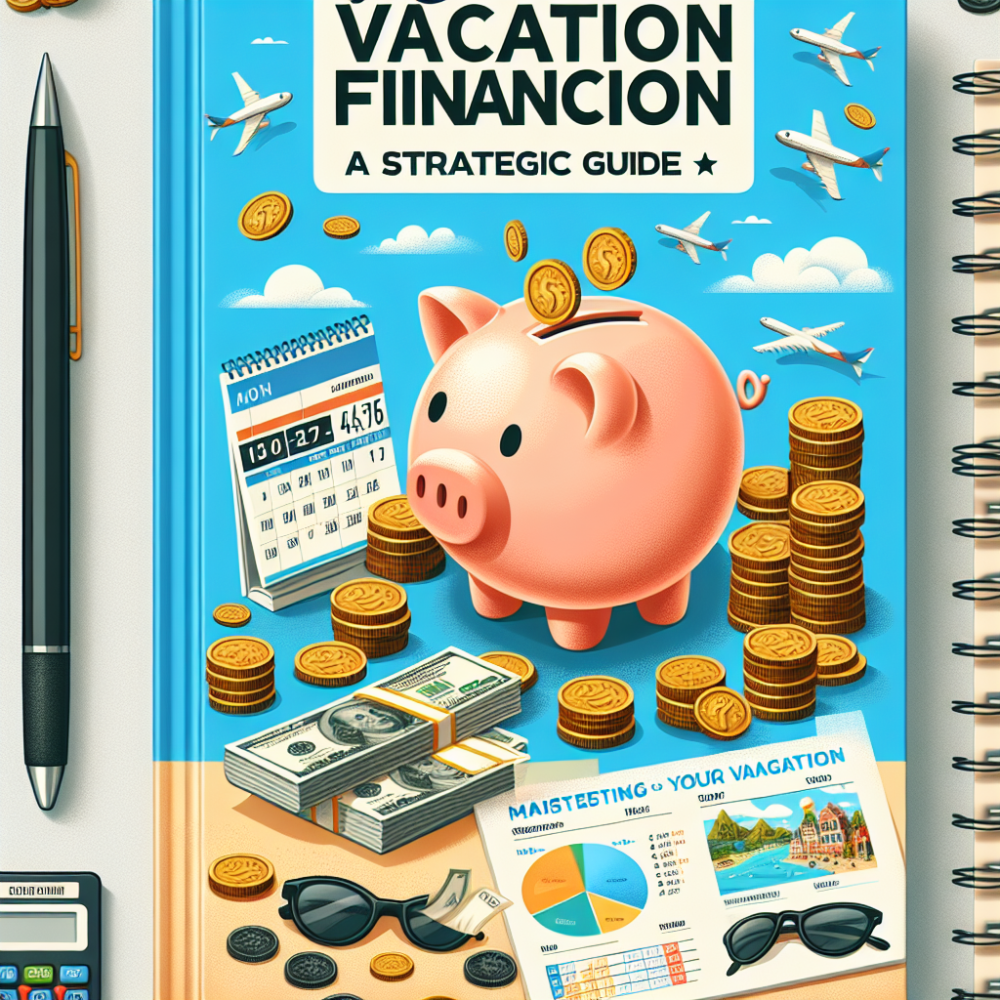Mastering Your Vacation Finances: A Strategic Guide

Posted on: Monday, March 4th, 2024
Taking time off for a vacation doesn’t have to be a financial burden if you plan smartly. The key to a worry-free holiday lies in effective budgeting and saving strategies that ensure you have the funds to enjoy without compromising your financial health. This guide provides a comprehensive approach to accumulating vacation savings, highlighting the importance of early planning, expense tracking, and resourceful saving methods. With the right financial habits, your dream vacation can become a reality without the stress of overspending or last-minute funding scrambles.
1. Establish a Vacation Budget: Before you can start saving, you need to know how much you’ll need. Research your intended destination, consider travel costs, accommodations, meals, and activities. Don’t forget to include a buffer for unforeseen expenses. Having a ballpark figure gives you a clear savings target.
2. Open a Dedicated Savings Account: Keep your vacation fund separate from your other finances to avoid the temptation of dipping into it for other expenses. Many banks offer savings accounts with competitive interest rates, which can further increase your vacation fund over time.
3. Set Realistic Saving Goals: Break down your total vacation cost into manageable monthly or weekly savings targets. Setting realistic goals makes the task less daunting and more achievable. Adjust your targets as needed, but always keep the end goal in sight.
4. Automate Your Savings: Set up automatic transfers from your checking account to your vacation savings account right after payday. Automating the process ensures you prioritize your vacation fund, making saving feel less like a choice and more like a routine part of your finances.
5. Track Your Spending: Be mindful of where your money is going. Use budgeting apps or spreadsheets to keep track of your daily expenses and identify areas where you can cut back. Saving for your vacation is an excellent motivation to reduce unnecessary spending.
6. Look for Deals and Discounts: Be on the lookout for travel deals, accommodation specials, and discounted activities. Many companies offer early bird specials or reduced rates for booking in advance. Utilize travel comparison websites and sign up for alerts on cheap flights and hotel deals.
7. Consider Alternative Destinations: If your dream destination is proving to be beyond your budget, look for alternatives that offer similar experiences at a lower cost. Being flexible with your travel plans can significantly reduce costs without compromising the quality of your vacation.
8. Earn Extra Income: If your current savings rate isn’t enough to meet your vacation goals, consider ways to earn extra income. Freelancing, part-time jobs, or selling items you no longer need can provide a financial boost to your vacation fund.
9. Use Reward Points and Miles: Take advantage of credit card rewards, airline miles, and hotel points to offset some of your vacation costs. Be strategic about using these programs to get the most out of your spending.
10. Reassess and Adjust Regularly: Keep a close eye on your vacation budget and savings progress. As your trip approaches, reassess your budget and spending to ensure you’re on track. Adjust your savings plan as necessary to meet your goal without stress.
Planning and saving for a vacation requires discipline, but it doesn’t have to be overwhelming. By following these strategic steps, you can accumulate the necessary funds to enjoy your holiday without financial worries. Start early, stay focused on your goals, and make informed decisions to ensure your vacation is as rewarding financially as it is personally.